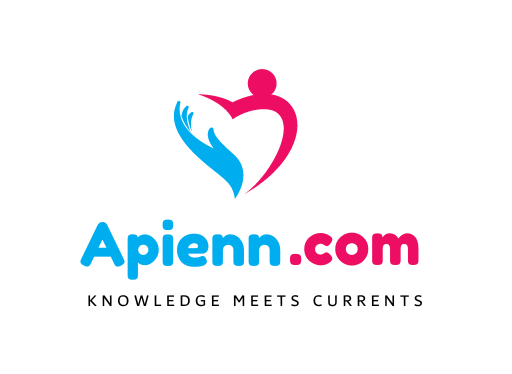Reaching key milestones with pivotal shifts in treatment modalities and the reshaping of drug development, manufacturing and distribution – 2023 was a significant year for the pharmaceutical industry. Entering 2024, these trends are set to drive the industry forward, impacting areas such as commercial pharmaceutical packaging and clinical trial supply services.
In this article, Jeff Livick, Director of Business Development at Sharp Services will explore the trends from 2023, how they will shape the industry in the coming year, and predictions for 2024.
Packaging Trends Reflecting the Clinical Landscape
A notable shift was seen in the pharmaceutical packing market in 2023, with an increased interest in pre-sterilised and ready-to-use pharmaceutical packaging options. This market was valued at $8.2 billion in 2022 and is predicted to reach $14.23 billion by 2031.
Packaging trends are reflective of what has been happening in the clinical sector, where demand for vials and syringes has increased substantially. Therapies will continue to evolve in 2024, with more complex treatments such as cell and gene therapies coming to the forefront. More complex therapies mean that the demand for pharmaceutical packaging will continue to grow, particularly for options that are compatible with novel and innovative treatments.
Outsourcing product packaging to trusted experts is a critical approach pharmaceutical companies can take to meet the demands of their products. Outsourcing can provide services such as sterile fill/finish and a range of different packaging options, enabling pharmaceutical companies to deliver therapies to the patients who need them. Developers should seek outsourcing partners that have invested in their packaging facilities and can accommodate the volumes needed for successful product delivery.
Wider Trends Impacting the Industry
Linked to the increased demand for pharmaceutical packaging is the substantial growth seen in the injectables market. The generic injectables market alone is expected to have grown from $94.86 billion in 2022 to $109.42 billion in 2023. Challenges within the cell and gene therapy market have resulted in program failures despite this impressive growth, highlighting the importance of robust solutions for injection devices.
Another important trend to consider is the rise of mergers and acquisitions (M&A), which has been driving substantial change within the industry. Heading into 2024, several blockbuster drugs are nearing patent expiration, which means an anticipated $700 billion surge in M&A activity and increased interest in biosimilars. Linking this to a trend in pharmaceutical manufacturing, internal manufacturing sites have been closed by several Big Pharma companies. Subsequently, this has led to increased outsourcing in manufacturing, as outsourcing companies have the capacity and facilities to manufacture high volumes of drug products.
As always, there is a need for adaptability and responsiveness within the pharmaceutical industry, as demand for specific products can change at relatively short notice. In 2023, this was evidenced by the use of COVID-19 vaccine capacities for alternative applications. In the coming year, there is likely to be a focus on orphan drugs, personalised medicines and smaller-scale projects. Finally, the regulatory landscape is constantly changing, ensuring that products always meet the needs of the patients and shaping the direction the industry is traveling in.
Innovative Technologies Tackling Sustainability
Although it was a major trend last year, the industry’s commitment to sustainability and environmental responsibility will continue to be a long-term focus. The use of mono-material solutions and alternatives to plastic components have been explored in pharmaceutical packaging. The development of innovative technologies and tools will push the industry towards more sustainable practices in 2024.
Clinical supply chain forecasting solutions offer many effective benefits to sponsors, including a positive impact on sustainability. By providing more accurate projections for supply chain management, forecasting solutions are designed to minimise waste and optimise resources. Clinical trials are becoming more complex, bringing with them challenges regarding limited or expensive products, which highlights the importance of effective resource management. Automation is another essential tool, offering enhanced efficiency and the minimization of quality deviations.
Sustainability is also increasingly a priority for outsourcing companies. Pharmaceutical companies should seek partners who are committed to working together to improve sustainable outcomes across the industry. Those who are taking sustainability seriously will likely have a dedicated Sustainability Manager or team and will offer eco-friendly packaging solutions, particularly in secondary pharmaceutical packaging. Awareness of sustainability issues will only increase in 2024. It is therefore imperative that all players in the pharmaceutical industry make a commitment to take action to reduce their GHG emissions and improve their environmental impact.
Delivering on the Potential of AI
The rise of artificial intelligence (AI) across all industries was one of the defining trends of 2023. In 2024, AI will have a significant impact on the pharmaceutical industry, offering a transformative force that can improve many processes and overall efficiency.
Integrating AI into drug discovery and development would be a revolutionary approach to ensure continued innovation. The ability to expedite clinical trial timelines and enhance supply chain efficiency could prove to be vital in the increasingly competitive landscape.
Another growing trend is the collaboration between pharmaceutical companies and AI-focused specialists. Partnerships like this signify that the industry is embracing AI for enhanced research and leveraging the power of AI in drug development.
Capitalising on Trends in 2024
Last year was defined by strategic successes, technological advancements, sustainability initiatives, and the increasing uptake of AI in pharmaceutical operations. Leading into 2024, these trends will continue to impact the pharmaceutical industry, including pharmaceutical packaging and clinical trial supply services. By taking a proactive approach to the trends shaping the industry and partnering with expert outsourcing companies in packaging and clinical supply services, pharmaceutical companies can help to ensure their success for the year ahead.




